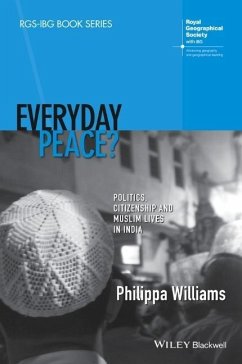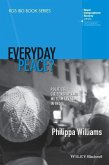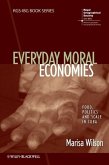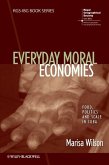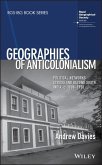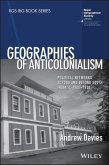Providing important insights into political geography, the politics of peace, and South Asian studies, this book explores everyday peace in northern India as it is experienced by the Hindu-Muslim community.
Challenges normative understandings of Hindu-Muslim relations as relentlessly violent and the notion of peace as a romantic endpoint occurring only after violence and political maneuverings
Examines the ways in which geographical concepts such as space, place, and scale can inform and problematize understandings of peace
Redefines the politics of peace, as well as concepts of citizenship, agency, secular politics, and democracy
Based on over 14 months of qualitative and archival research in the city of Varanasi in Uttar Pradesh, India
Hinweis: Dieser Artikel kann nur an eine deutsche Lieferadresse ausgeliefert werden.
Challenges normative understandings of Hindu-Muslim relations as relentlessly violent and the notion of peace as a romantic endpoint occurring only after violence and political maneuverings
Examines the ways in which geographical concepts such as space, place, and scale can inform and problematize understandings of peace
Redefines the politics of peace, as well as concepts of citizenship, agency, secular politics, and democracy
Based on over 14 months of qualitative and archival research in the city of Varanasi in Uttar Pradesh, India
Hinweis: Dieser Artikel kann nur an eine deutsche Lieferadresse ausgeliefert werden.
'In this sparkling new book, Philippa Williams describes in rich detail the social practices binding Hindus and Muslims together in the Indian city of Varanasi. Williams not only challenges received wisdom on religious communal relations in India but also demonstrates the crucial importance of examining the social reproduction of everyday peace. A tour de force.'
-- Craig Jeffrey, Professor of Development Geography, University of Oxford, UK
'Philippa Williams' new book is in the best tradition of interdisciplinary and critical work on peace. Research and theory about peacemaking and peacebuilding has historically shifted from dealing with inter-state war to how peace is configured through everyday social relations. Work on the latter approach is becoming increasingly sophisticated and interdisciplinary. It often draws upon examples now becoming visible because of more sophisticated methodologies and theory, from across the world, and as opposed to the Eurocentric exemplars commonly used in political science. Williams' study pioneers new understandings of the spatial and social production of peace especially in subaltern frameworks such as some of India's Muslim communities.'
-- Oliver Richmond, Professor of International Relations, Peace & Conflict Studies, University of Manchester, U
-- Craig Jeffrey, Professor of Development Geography, University of Oxford, UK
'Philippa Williams' new book is in the best tradition of interdisciplinary and critical work on peace. Research and theory about peacemaking and peacebuilding has historically shifted from dealing with inter-state war to how peace is configured through everyday social relations. Work on the latter approach is becoming increasingly sophisticated and interdisciplinary. It often draws upon examples now becoming visible because of more sophisticated methodologies and theory, from across the world, and as opposed to the Eurocentric exemplars commonly used in political science. Williams' study pioneers new understandings of the spatial and social production of peace especially in subaltern frameworks such as some of India's Muslim communities.'
-- Oliver Richmond, Professor of International Relations, Peace & Conflict Studies, University of Manchester, U

